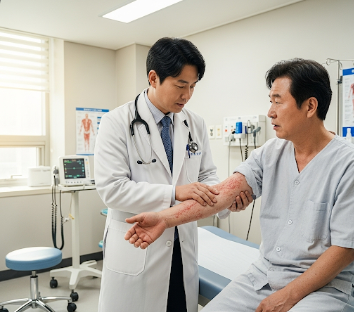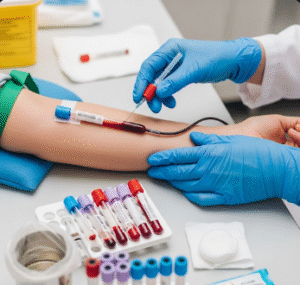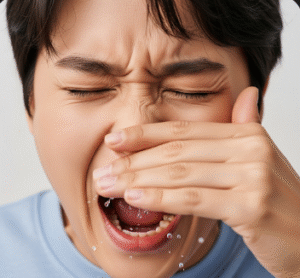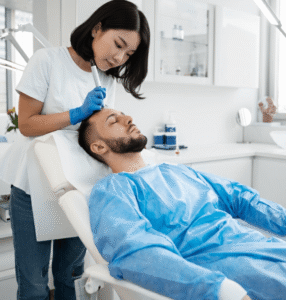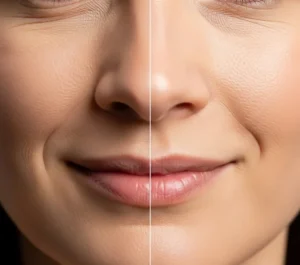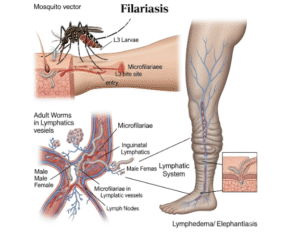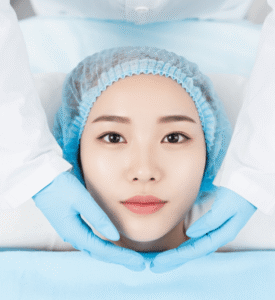Overview
Uremic pruritus is a condition characterized by chronic itching in patients with advanced kidney disease or end-stage renal disease (ESRD). It commonly occurs in individuals undergoing dialysis and can significantly affect quality of life.
➤ Uremic pruritus is often diffuse, affecting multiple areas of the body, particularly the back, arms, and legs.
➤ The exact cause is multifactorial, including uremic toxins, inflammation, and imbalances in minerals and hormones.
➤ In Korea, specialized nephrology centers provide advanced treatment options, including dialysis optimization, medications, and integrative care.
Key Facts
► Definition: Chronic itching associated with kidney dysfunction, not explained by dermatologic conditions.
► Prevalence: Affects up to 50–60% of patients on hemodialysis.
► Symptoms: Persistent itching, dry skin, sleep disturbances, anxiety.
► Risk factors: Chronic kidney disease (CKD), high phosphate or calcium levels, inadequate dialysis.
► Treatment in Korea: Dialysis management, pharmacological therapies, topical care, and complementary therapies.
What is Uremic Pruritus?
Uremic pruritus is a systemic symptom that develops in patients with chronic kidney disease (CKD), especially in those receiving dialysis. The condition is not caused by a primary skin disorder but arises due to accumulation of toxins, mineral imbalances, and systemic inflammation.
➔ The itching is often persistent, severe, and can worsen at night.
➔ It may be localized or generalized, with scratching sometimes leading to secondary skin lesions.
➔ Chronic pruritus in CKD patients is associated with sleep disruption, depression, and reduced quality of life.
What Symptoms Are Related to Uremic Pruritus?
Uremic pruritus manifests primarily as itching, but several associated symptoms can occur:
→ Dry, flaky, or rough skin due to chronic scratching and mineral imbalances.
→ Redness or excoriation from repeated scratching.
→ Sleep disturbances, as itching often worsens at night.
→ Fatigue and mood changes, including anxiety and irritability.
→ Localized or generalized discomfort, sometimes accompanied by tingling or burning sensations.
→ Secondary infections in areas with persistent scratching.
Causes / Possible Causes of Uremic Pruritus
Kidney-Related Factors
➤ Accumulation of uremic toxins that stimulate itch receptors in the skin.
➤ Imbalance of calcium, phosphate, and parathyroid hormone (PTH), common in CKD.
➤ Inadequate dialysis, leading to insufficient clearance of pruritogenic substances.
Inflammatory and Immune Mechanisms
➔ Elevated levels of pro-inflammatory cytokines contribute to skin irritation.
➔ Immune dysregulation may increase sensitivity to pruritogens.
Neurological and Peripheral Mechanisms
→ Abnormal activation of peripheral itch nerves in CKD patients.
→ Altered central nervous system processing may amplify itch sensations.
Additional Contributing Factors
► Dry skin due to reduced sweat and oil production.
► Secondary skin conditions aggravated by scratching.
► Certain medications or topical irritants.
When Should I See My Doctor?
Patients with CKD or ESRD should consult a doctor if:
➤ Persistent itching interferes with sleep or daily activities.
➤ Skin shows redness, bleeding, infection, or open sores.
➤ There is sudden worsening of itching despite dialysis treatment.
➤ Other symptoms develop, such as fatigue, nausea, or swelling, indicating CKD progression.
Early evaluation allows treatment optimization and prevention of complications.
Care and Treatment
Self-Care and Home Measures
► Keep skin well-moisturized using hypoallergenic creams.
► Take lukewarm baths instead of hot water to prevent skin drying.
► Avoid scratching; gently tap or press the skin to relieve itch.
► Wear soft, breathable clothing to reduce irritation.
Medical Treatments
➔ Topical therapies: Emollients, moisturizers, and low-potency corticosteroids for localized relief.
➔ Antihistamines: Limited effect but may help mild cases.
➔ Gabapentin or pregabalin: Neuropathic itch modulators used in dialysis patients.
➔ Optimized dialysis: Adjusting dialysis parameters to improve clearance of uremic toxins.
➔ Correction of mineral imbalances: Controlling phosphate, calcium, and PTH levels.
Advanced and Complementary Therapies
→ Phototherapy (UVB light therapy) for resistant cases.
→ Acupuncture or herbal therapies, increasingly integrated in Korean clinics for symptom relief.
→ Psychological support to address sleep disturbances and emotional impact.
Treatment Options in Korea
South Korea provides comprehensive nephrology care with a focus on uremic pruritus:
Diagnosis in Korea
➤ Blood tests for kidney function, electrolytes, phosphate, calcium, and PTH levels.
➤ Dermatological evaluation to rule out primary skin disorders.
➤ Assessment of dialysis adequacy and uremic toxin clearance.
Non-Surgical Care
► Personalized dialysis optimization programs.
► Combination of topical therapies and oral medications.
► Integrative approaches including acupuncture and physiotherapy for skin comfort.
Advanced Interventions
➔ Phototherapy using narrowband UVB for chronic, resistant itch.
➔ Adjustments in dialysis membrane type or frequency to improve toxin removal.
➔ Use of novel medications targeting neuropathic and inflammatory pathways.
Rehabilitation and Lifestyle Support
→ Education on skin care and itch management.
→ Sleep hygiene and counseling to reduce pruritus-related distress.
→ Continuous monitoring of CKD progression and mineral balance.
Korean medical centers integrate state-of-the-art nephrology, dermatology, and supportive care, providing effective treatment for uremic pruritus and improving patients’ quality of life.

